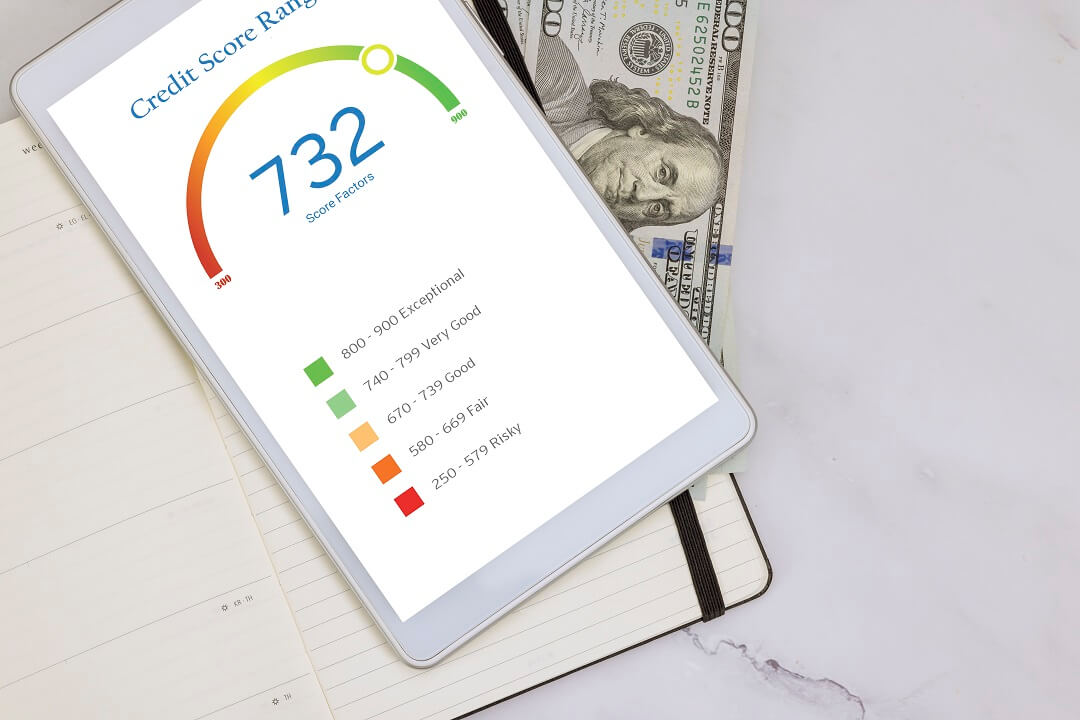Key takeaways
- Working with creditors and paying down debt is great, but oftentimes your credit report doesn’t reflect those changes right away. Rapid rescoring gives you more control, allowing you to see the benefits of your hard work more quickly.
- Errors on your credit report, such as inaccurate balances or unknown accounts, can greatly affect your ability to qualify for a mortgage. Monitoring your credit reports on a regular basis allows you to identify and address these errors immediately.
- Raising your credit score even a few points is often enough to get lower interest rates or better loan terms.
What is rapid rescoring?
If you are actively working to boost your credit score for a mortgage loan, your lender may suggest a rapid rescoring after you have done some work. If you have been paying down debt to creditors or even paying off accounts, it can often take the creditor one to two billing cycles to report those changes and affect your credit score. If you are working to purchase a home, this waiting period may take too long for you to see any benefit. At this point, your lender may recommend rapid rescoring in order to quickly make the changes in your credit report and deliver a new, accurate credit score.
How does rapid rescoring work?
After you pay down your debts and have proof of payment or prove entries on your report are inaccurate, your mortgage lender can pay a fee to the credit reporting agencies to update your account. At this time, the lender will submit proof of recent payments and other information, and the credit reporting agency manually makes the changes to the account, and a new credit score can be calculated.
How long does rapid rescoring take?
Waiting for creditors to update your account after payments are made can take weeks or longer. When your lender submits the documentation for a rapid rescore, your credit information should be updated within two to three days, giving you an accurate credit score that is hopefully enough to qualify for lower interest rates or better loan terms.
Should you consider rapid rescoring?
In most cases, rapid rescoring is recommended by your mortgage lender if they feel that the potential changes will affect your credit score enough to qualify for better rates or loan terms. If you have the ability to make the necessary changes, such as paying down debt, a small change in your credit score can be enough to save you thousands over the life of your mortgage.
Credit scores and credit reports
Your credit report is a summary of your past and current credit history. Your credit report highlights your credit history and how you have borrowed money, whether you make regular payments, and the amount you hold in current loans. Your credit report will provide your personal information, credit account information, credit card balances or the total amount owed, the available credit limits, and how timely you make your payments. Six main factors affect a scoring percentage, which ultimately creates your credit score. These six factors are:
- Payment history
- Amount owed
- Length of credit history
- New credit
- Your mix of credit types
- Hard inquiries
How to check your credit report
You are able to get a free copy of your credit report each year from the three main credit bureaus: Equifax, Experian, and TransUnion. You can access all three free credit reports and free credit scores through AnnualCreditReport.com.
Steps to take if you find errors in your report
If you find errors on your credit report, you want to take the steps necessary to correct these errors.
- Identify all errors on each of the three credit reports.
- Gather material and documentation that shows the error. This can include copies of credit card statements, bank statements, copies of birth certificates or divorce decrees, a police report for identity theft, copies of utility bills for an incorrect address, and anything else that can help disprove the information reported.
- Dispute the errors. All three credit bureaus have online portals for disputes or you may choose to call or write a letter. It is also a good idea to contact any creditors or card issuers that are providing inaccurate information on your credit file.
- Review the response. In general, credit bureaus have 30 days to investigate and respond to a dispute. If the item is determined to be an error, the credit bureau removes or alters the items disputed. If they do not accept your proof, they will refuse to remove it.
Tips for improving your credit scores
If you are not in a hurry to purchase your new home, it may be beneficial to take some time to boost your credit score. Here we offer some tips that will help you raise your credit score and put you in a better position for a new mortgage with better rates and interest.
Perform regular credit monitoring.
As we mentioned above, regularly checking your credit report allows you to discover errors in your report when they first appear. It is important to dispute errors your find in your credit report. Continue to monitor your reports to ensure they add the updated information.
Pay all bills on time.
One of the most important ways to boost your credit score is to pay all your debts on time and, if possible, in full. Payment history and missed payments play a major role in your credit score, so it is important to avoid late payments. This is often a good reason to opt for automatic payments when possible.
Reduce overall outstanding debt.
You want to keep all your credit card debt with a low credit utilization ratio, ideally having a utilization rate under 30%. You can do this by paying more than the minimum payment each month and not utilizing the cards.
Increase your available credit limit.
If you are unable to pay down extra on your credit card debt, consider asking the credit card company for a credit increase in order to lower your usage. Just be sure not to go on a spending spree with your new limit.
Avoid applying for new credit.
If you are working to build your credit score, now is not the time to apply for new credit accounts. When a new creditor puts forth a credit inquiry, it can negatively impact your credit score.
Creating a winning credit score
When it comes to your credit report and credit score, accurate information is crucial. Regular monitoring can help you better identify potential errors and get them fixed immediately. When looking to apply for a mortgage, it may be in your best interest to take some time to focus on boosting your credit score first. Even the smallest jump in a score could be enough to qualify you for better terms or interest rates, saving you thousands of dollars over the life of your mortgage.
Helping you navigate the home-buying process
At Hero Home Programs, we understand how confusing credit reports and the home-buying process can be to consumers. Our team is committed to helping borrowers find the home of their dreams and qualify for the mortgage that best meets their needs. We work with clients to help boost credit scores, find grants, and match borrowers with lenders that can provide the best rates and terms. To learn more, schedule a consultation today.












